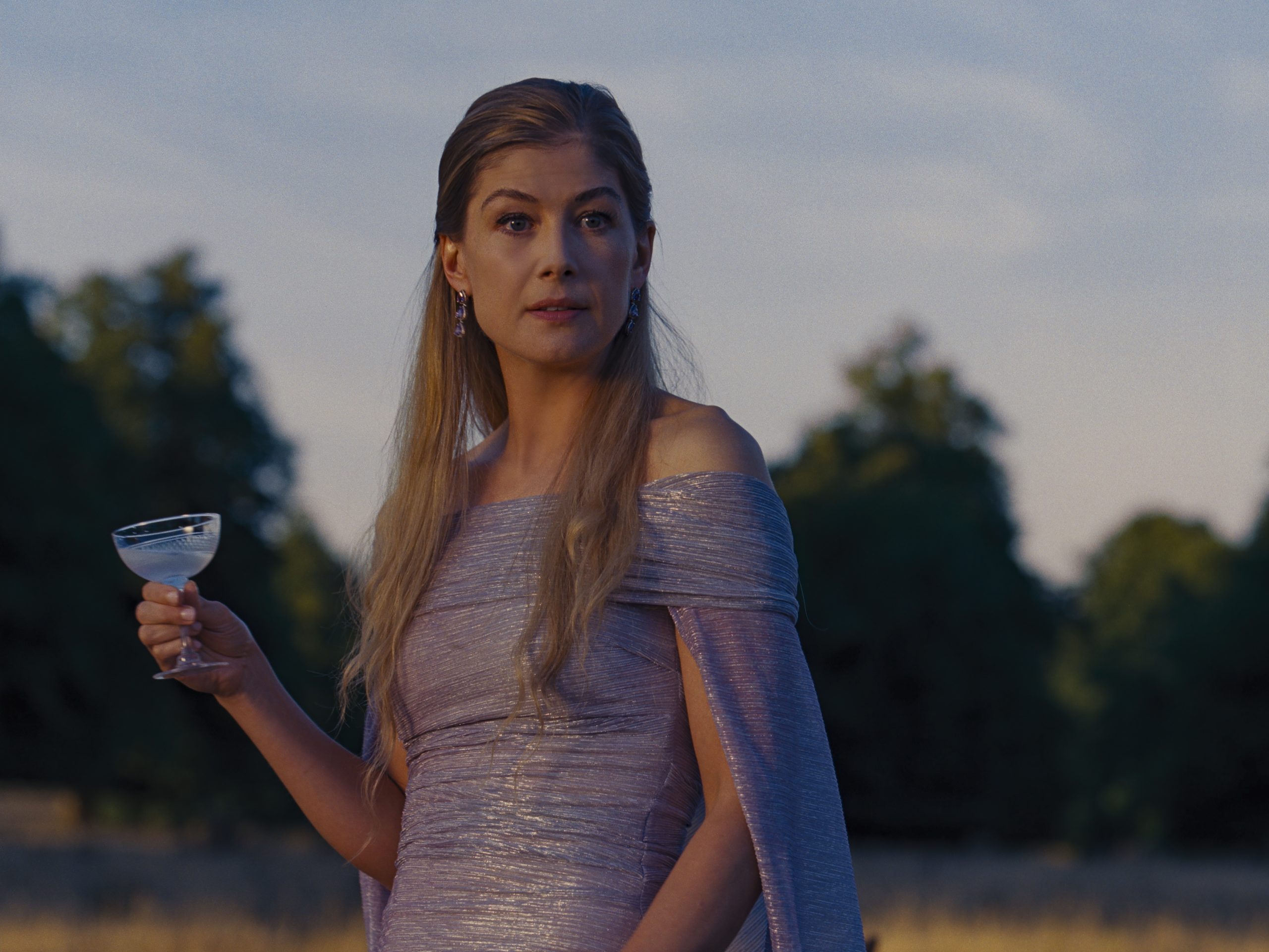‘Saltburn’ Review: Emerald Fennell’s Expertly-Crafted Satirical Thriller Does Not Stick the Landing
Much like Bradley Cooper did with Maestro, Emerald Fennell‘s second directorial effort is a magnificent display of what she can accomplish as the woman pulling the strings of a highly complicated production that requires a true visionary to pull off. Every technical detail of Saltburn, from its pitch-perfect cast to its jaw-dropping production design to its towering cinematography, works in tandem to deliver one of the best-looking and best-directed films of 2023. However, Saltburn is also a glaring reminder that the script is your most important asset to nail while making a film, and though the individual pieces work very well, it’s the full picture that doesn’t quite come together.
That is especially painful because the first 100 minutes of the film are an edge-of-your-seat experience, with Fennell’s script drawing fully realized characters. The writing, slowly and for the most part, justifiably, starts to go mad and doesn’t even look back. It’s all set up during the first act, a methodical characterization of our two main players while they are still in a setting we as an audience can recognize. Barry Keoghan plays Oliver, a “scholarship boy” at Oxford who can’t really blend in with his rich peers — that is until the day he aids a Felix (Jacob Elordi) in distress. The two bond immediately, or should I say, Felix finds something very appealing about the good-spirited and awkward-feeling Oliver, while Oliver is nearly fangirling quietly while he’s around him.
But whatever it is that Felix finds fascinating about Oliver is as big a mystery to the people around him as it is to the audience watching. It was really important for the script to get this part right, because everything else in the movie hinges on the fact that you’re either an Oliver and have had a Felix in your life, or you’re a Felix and have had an Oliver in your life. It’s not necessarily about money, but rather the status of having movie star looks and getting whatever girl you lay your eyes on at the party, while also having more friends than you’ll ever care for — all of them gravitating around you like a moon around Jupiter.
Oliver’s life will never be the same after he accepts Felix’s invitation to spend the summer over at Saltburn, his family’s estate. Besides the already jealous cousin Farleigh (Archie Madekwe), there he meets Felix’s parents, played by Richard E. Grant and Rosamund Pike, who give equally electrifying performances, his sister Venetia (an inspired Alison Oliver), and Poor Dear Pamela, the actual name of the character as per the film’s credits, and the perfect description of Carey Mulligan‘s “mom’s troubled friend whom we can’t wait to get rid of”.
Initially, it looks like Oliver isn’t nearly interested in being a part of Saltburn’s life, and would be more comfortable pretending to be part of the woodwork. But one montage danced to MGMT’s “Time to Pretend” (an interesting title choice…?) later, Oliver is already another Saltburn boy in an idyllic summer. But what is his end goal, exactly? Is he trying to get into Felix’s pants, into his wallet, or into his emergency contacts list? This, much like his sexuality, is one of the film’s most guarded secrets — the answer to one of them turns out to be deeply unsatisfying in the final 20 minutes of the film; the other is smartly left up in the air.
Oliver quickly starts to plant his roots in the Saltburn garden, being as creeped out by the butler as everyone else, messing with cousin Farleigh’s false sense of security, gaining Felix’s mother’s affection, and, in one of the most tragically tossed-away ideas of the film, flirt with Venetia. That happened in one of several zig-zags Fennell introduces in the second act to try to keep the audience on their feet — in hindsight, though, most of them feel like they would have set up much more interesting movies. And maybe the “what could have been” feeling is what the writer-director was going for there, an attempt to throw Oliver several lifelines before he goes off the deep end in the second half of the film.
The strengths of Saltburn go well beyond the expertise of the crafts departments, though. While the script, and the third act in particular, could have used a makeover, the truth is that the characters pop off the screen and are impactful enough individually and also as a group, leaving the audience with strong impressions of each of them. And to double down on that, the mystery box around Oliver is as frustrating at times as much as it makes for a much more interesting viewing experience. But all of it is masterfully threaded by Keoghan’s go-for-broke performance — not in a presumptuous way, though, as the character’s biggest moments are all played in silence and with his mouth shut. It’s a full-body performance that tracks everything, from the way he stands to the way he looks at the people around him.
Next to him, in a “hold my beer” kind of move, Jacob Elordi plays the charismatic Felix with such delight and wit that it’s almost impossible not to love him as much as Oliver says he does in the opening moments of the film (a scene that comes back at the very end to close the circle). For someone who already has the movie star look and magnetism, it was probably like waking up in the morning — and yet, if you look for it, you’ll find so many nuances that the Euphoria star got to infuse his character with.
But besides our two leads, Rosamund Pike delivers the perfect supporting performance as Felix’s mother, Elspeth, who only asks for the spotlight whenever the script needs her to have it, yet is intriguing enough to leave us thirsty for more. Besides delighting us with small sprinkles of her past as a model and warnings about the ugliness in this world, Elspeth establishes a very interesting relationship with Oliver, perhaps because she sees in him her past self, or maybe because she wants to believe that anyone who really wants to, can access her life of luxury and opulence.
And though he may not get as much attention, I found Richard E. Grant’s spoiled attitude as the detached-from-reality lord of Saltburn similarly fascinating, even though Elspeth is the more interesting character of the two — also why she gets a lot more to do and say in the film, rightfully so. Venetia is someone I would have loved to spend more time with, though, as it feels like the script never really answered the many questions it posed about her. There’s a reason why, of course: The story Fennell wanted to tell didn’t need to address them, and perhaps the point was for her to remain a mystery all the way.
Fennell’s self-assured direction caught me off guard during the opening credits, which immediately hooked me, and was enough to keep the energy going for the first act. After that, the story she’d crafted took off on its own, but she was unable to land the plane after trying too hard not to become a British version of Parasite. And that is despite Linus Sandgren’s immaculate eye for compositions and framing, not to mention colors, Victoria Boydell’s solid editing, and most importantly, Barry Keoghan’s naked dance.
Saltburn is currently streaming on Prime Video worldwide.
Miguel Fernández is a Spanish student that has movies as his second passion in life. His favorite movie of all time is The Lord of the Rings, but he is also a huge Star Wars fan. However, fantasy movies are not his only cup of tea, as authors like Scorsese, Fincher, Kubrick or Hitchcock have been an obsession for him since he started to understand the language of filmmaking. He is that guy who will watch a black and white movie, just because it is in black and white.









